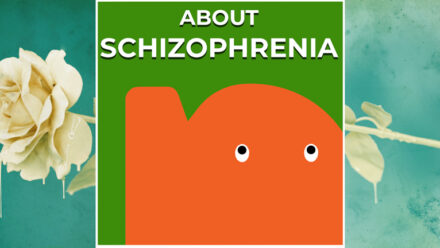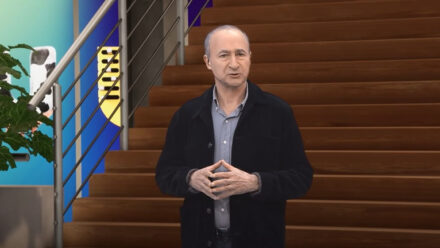
Rianne thinks that psychiatrists should focus more on listening to the heart, and come out of people’s heads. People subconsciously get the message they’re ‘not wanted’, ‘not loved’, and ‘not protected’.
I was listening to Jim van Os and Sander’s podcast and thought, ‘my god, psychiatry is really stuck in people’s heads, it has lost the connection to the heart.’ This is pretty hilarious, considering the psychiatric sector should be an expert on the human psyche. I think there is much beautiful and good knowledge, a lot of useful tools, but also a lot of that coming from inside ‘the head’.
Many people think that labels and DSM (descriptions of mental health conditions, stands for Diagnostic and Statistical Manual of Mental disorders) are the cause of certain behaviours and ‘problems’
But they are merely a description of the criteria for those behaviours. If you meet those criteria, it has a name. Which doesn’t really help you. I would like to quickly point out again, that everything is made up, which really isn’t right or wrong. But in reality, we do have the freedom to make up our own minds about what is the truth. In the Middle Ages, some people were simply labelled as ‘the devil’ or ‘possessed’, and later on, the labels were ‘made up’ through DSM. In fact, they were never meant to be used in the way they are being used these days.
Mankind and its knowledge is still developing. Knowledge, and the things we make up, are not static. They are always evolving. Something that is now considered a fact, may well be found to be a lie in 50 years’ time. A person can have four qualifications, and fancy titles, but this is no guarantee that their knowledge has integrated (in society) and no guarantee this is going to help you. You could have a neighbour without any qualifications, who might be more capable of helping you than anyone else. The question is, are the knowledge and the mind connected to the heart?
In my book I wrote ‘anorexia doesn’t exist, I made her up’
In the clinics where I spent most of my youth, quite often was said ‘it can happen to anyone’, as if it were a bacterium snatched out of the air, that could suddenly cause an eating disorder, or a depression. I can see a new movement starting to form, a movement which PsychosisNet is definitely a part of. A movement that focuses on a person, with much more attention to trauma and complex-trauma.
Back to my eating disorder. It served a certain purpose for me, it was a survival strategy, and it numbed the pain of traumatic experiences. It was a ‘no-motion’ against eating, but the ‘no’ was actually a response to something else. Self-harm and suicide attempts are survival strategies too, they are used for not feeling the pain of the trauma.
What I really liked about the podcast, was that Sander was doing his utmost to advocate human rights to the psychiatric sector
I know that these days, the rules regarding separation are a lot stricter than they used to be. Back in the day, people/youngsters would easily be separated from others for two weeks. I’ve seen it with my own eyes. But if the information from youth welfare is anything to go by, it hasn’t improved much at all, despite the stricter rules. In my opinion, we are dealing with a loss of connection to the heart here, and people merely operating from protocols. Deep in my heart, it feels unbearable to lock up people who are almost always a victim. These people are being traumatised all over again. People subconsciously get the message they’re ‘not wanted’, ‘not loved’, and ‘not protected’. We would never class locking a child in a cupboard as love or protection.
‘Not wanted’, ‘not loved’, and ‘not protected’ are the three components of trauma, as Dr. Franz Ruppert describes it; the core of the pain of trauma
He is also the founder of the framework of the Identity Oriented Psycho-trauma Theory (IoPT), the split structure of the psyche after a traumatic experience, consisting of the healthy part, trauma part, and surviving part.
People have the remarkable ability to shut themselves off, or to act without emotion. We can watch images of war or accidents without it affecting us emotionally. I think that’s a survival strategy, a way to keep the pain away. Which may be necessary at that time, or convenient. But we shouldn’t stay like that and continue to shut ourselves off. If we open our hearts and look at our fellow men, we need the capacity to let the pain and sadness exist. We need to be able to let these strong emotions flow through our bodies, using our healthy part. Everybody has a healthy part, the core of the wholeness that I have written about before. A benzodiazepine automatically sends the message that there is no room for the pain of the trauma, looking for distraction or positive thinking get in the way of it too. They are all strategies for not having to revisit the trauma that is at the heart of it all.
Will the psychiatry make the connection to the heart again?
Or is it separated from its own traumatic feelings? Does it stay in their head because it’s too hard to truly experience their feelings. I hope we can make the journey to our core, our heart. Everything I write has been formed through my subjective way of viewing the world through my thoughts, consciousness, and experiences, just like everyone else has their subjective view of the world. What I write is not static, it’s forever changing, and there are always exceptions. Rumi wrote this so beautifully: ‘Beauty is in the eye of the beholder’. If the psychiatry looks at disorders and illnesses, then it is the beholder of them all.





Comments: